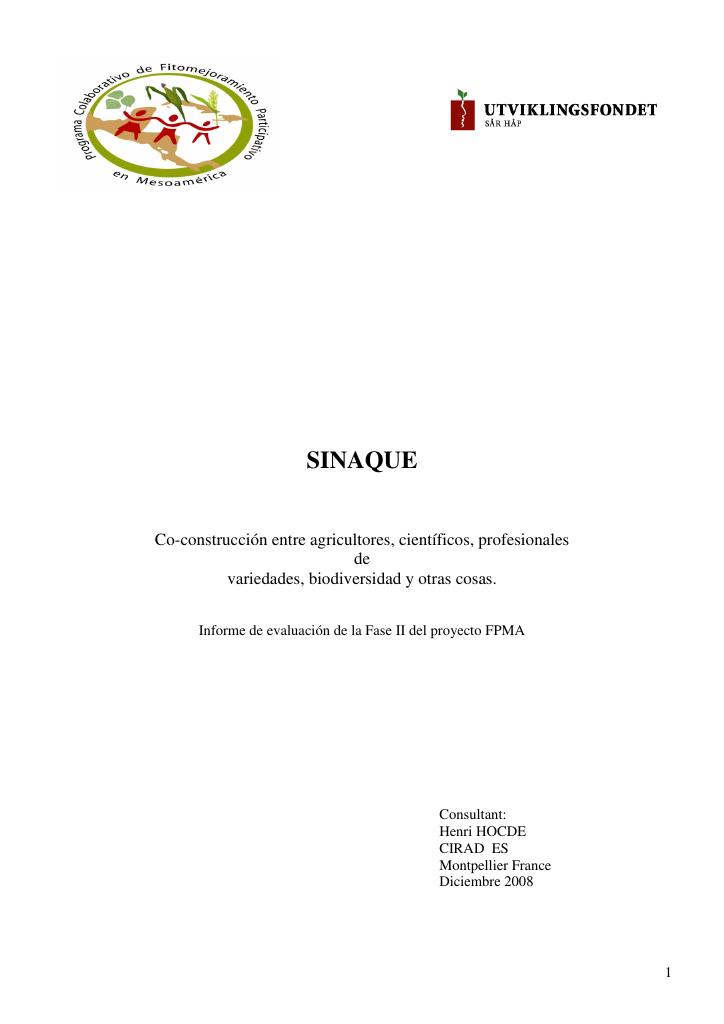Evaluering
Co-building of varieties, biodiversity and other things among farmers, scientists and professionals Spanish
The Collaborative Program on Participatory Plant Breeding in Mesoamerica (PPBMA) started in 2000 in Nicaragua and Honduras and later expanded to Guatemala, Cuba, Mexico and Costa Rica. The program is an interdisciplinary efforts to bring together farmers, farmers' organizations, non-governmental organizations (NGOs), government institutions and research centers to strengthen the participation of farmers in conservation and utilization of germ plasma, in breeding (selection, validation and seed production) and sustainable management of crops. The second phase of the PPBMA began in 2005 in Nicaragua, Honduras and Guatemala with funding from the Norwegian Development Fund; Costa Rica, Nicaragua, Honduras and Mexico with funding from ACSUR and Cuba with funding from the IDRC Canada. The main development goal is to improve quality of life of 60,000 households in Mexico, Guatemala, Honduras, El Salvador, Nicaragua, Cuba and Costa Rica. The objective of this evaluation is to assess achieved results and sustainability of activities of the Participatory Plant Breeding in Meso-America (phase 2).
